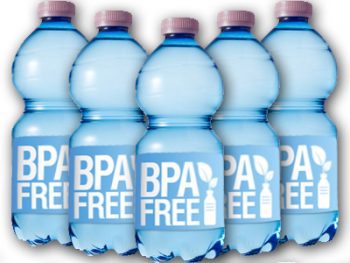September 17th, 2018
By Andy Coghlan
Guest writer for Wake Up World
Many plastic bottles are sold as “BPA-free” — meaning they don’t contain bisphenol A, an ingredient known to disrupt reproduction in mice. But now it seems that the additives used in place of BPA are potentially just as harmful.
The discovery could mean that the replacements, such as bisphenol S (BPS), might also potentially affect people if they leach out into food or drink.
There’s no solid evidence yet that this happens. But the new results from mice suggest that if there is a risk, it may match that posed by BPA itself. “Several of these bisphenols induce changes in the germline similar to those we reported previously for BPA,” says Patricia Hunt of Washington State University in Pullman, who helped draw attention to the BPA problem 20 years ago.
[pro_ad_display_adzone id=”110028″]
Hunt’s latest discovery emerged in the same way as her BPA findings. As before, she noticed that mice kept in certain plastic cages began to show reproductive problems, such as abnormal eggs and low sperm counts. As with BPA, she found the inner surfaces to which mice were exposed were contaminated, this time with BPS that had leached out from the plastic.
Screening Cells
Hunt investigated the problem in greater detail by exposing female mice fetuses to tiny amounts of a selection of BPA replacements at the point where their eggs are developing. She also exposed male mice to the chemicals just after birth, when they begin developing sperm.
When the exposed mice were older, Hunt screened cells destined to become sperm or eggs for abnormalities. She counted the number of points in DNA — called MLH1 foci — where chromosomes had been reshuffled. The amount of shuffling tallies with the degree of abnormality, with a higher and lower levels of shuffling each being worse in different ways.
Exposed females had abnormally high numbers of MLH1 foci compared to controls — which suggests they will produce more abnormal eggs. The opposite was found in males, possibly causing cells to die before fully maturing into sperm — implying the males would have lower sperm counts. “Our previous studies on BPA showed that these subtle changes increased the frequency of chromosomally abnormal eggs ovulated by adult females, and increased cell death during sperm creation in adult males,” says Hunt.
Oliver Jones at the RMIT University in Melbourne, Australia, cautions that it is too soon for people to worry about the findings. “The number of animals used in the work is very low and the animals themselves were very inbred,” he says. “It should also be remembered that mice are not mini-humans. Some chemicals that cause problems for them don’t affect us as all.”
The abnormalities were passed on for three generations, but faded after that. Hunt stressed that more work is needed to find out if some replacements for BPA might be safer than others, pointing out that there are dozens now in use.
Source: DOI: 10.1016/j.cub.2018.06.070
Related reading: Corporations Replace BPA with More DNA-Damaging Bisphenols
[pro_ad_display_adzone id=”110027″]







